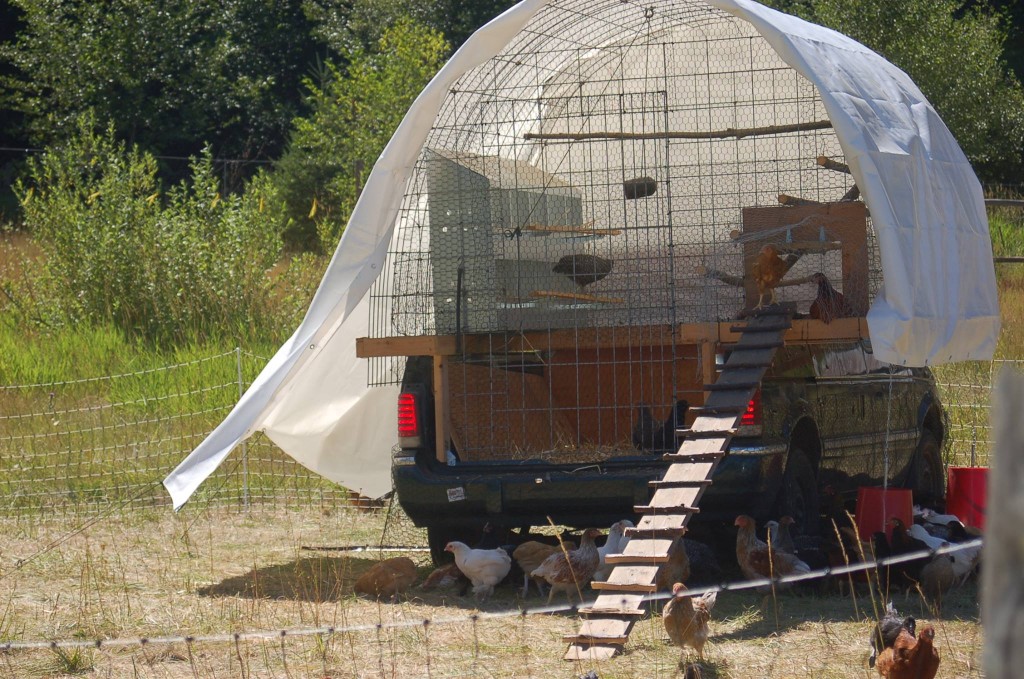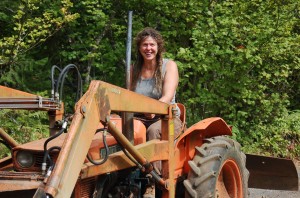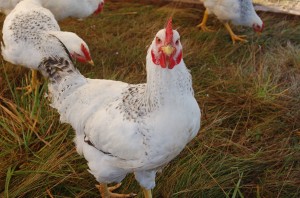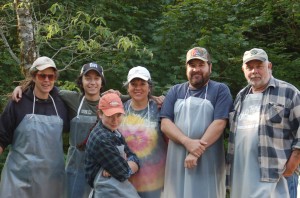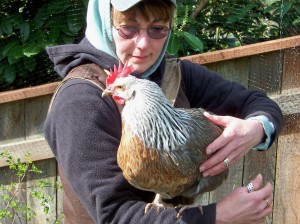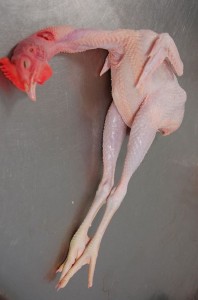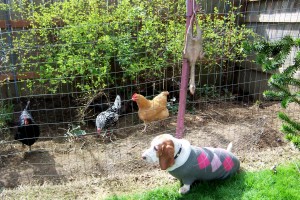Lee Lynn Thompson, owner and operator of Scratch A-Lot Farm has a lifetime of experience in raising chickens. She and her husband have recently opened their farm which primarily raises, processes and sells heritage breeds of poultry in Washington State. Sabra Snow is a retiree with a passion for permaculture and desire to learn. She is an apprentice on Lee Lynn’s farm and has learned some surprising skills. Both Lee Lynn and Sabra join me on the Urban Chicken Podcast today to discuss pasture-raised poultry, eating heritage breed chickens, and the reasons to learn how to butcher chickens ourselves.
Lee Lynn Thompson first learned to butcher chickens in her youth in an unconventional situation. She was deeply moved by the experience to feel keenly that chickens should be raised and processed in a humane and gentle manner. After the childhood experience on a chicken farm, she spent years of trying to avoid buying conventionally raised eggs and poultry. She finally decided to address the issue head on. Lee Lynn began volunteering regularly at a small scale farm in Colorado and it was during her tenure there that she learned to pasture-raise and slaughter chickens.
Lee Lynn recently moved to the beautiful Columbia Gorge region of Washington state and started Scratch A-Lot Farm. The farm primarily pasture raises heritage turkeys and chickens on a rather small acreage. She uses large tractor pens to house her birds and allow them the opportunity to spend their days out on the land. Unlike conventionally raised birds, Lee Lynn’s flock knows the joy of basking in the sunlight, being given space to move, scratching in the earth for bugs and weeds and being able to dust bathe as desired. Providing her birds dignity in their lives is very important to Lee Lynn.
The difference in the quality of life and treatment of these birds is translated into a difference in the quality of meat that they ultimately produce. I personally had the chance to purchase and bake one of Lee Lynn’s heritage breed chickens, a Delaware, and experience first-hand the superior taste and texture of the meat. I had baked the bird in a cast iron dutch oven with just some butter and salt and pepper to season the meat — and it was incredible! The roast chicken was unlike any other chicken I had ever had before. Though there was more dark meat on the bird, it was delicious and more flavorful. Without being overly chewy, the meat had a firmer texture.
I met Lee Lynn and her apprentice Sabra Snow while they were selling their birds at the PNPA Fall Poultry Show in Vancouver, WA. Sabra shared with me some insights of her experiences of apprenticing on Scratch A-Lot Farm and learning all the aspects of the operation — including butchering the birds. Sabra is a retiree who used to live in the Seattle area and have a small backyard flock of her own. She is very thoughtful about her food sources and the treatment of livestock. Sabra serves as a clear example to us all, that everyday people, like you and me, can learn the traditional skill of slaughtering and butchering chickens.
On Scratch A-Lot Farm, Lee Lynn uses slaughtering techniques developed by animal science professor and autistic, Temple Grandin. Temple avidly advocates for the gentle and humane slaughtering of animals. She has stated that being autistic provides her a better understanding of how animals feel. Lee Lynn strives to make her on-site processing of the birds as gentle, calm and respectful as possible. “(Grandin) talks about animals having two major responses, one to pain and one to fear. To them, pain is just another sensation like hot or cold, but what really bothers them is fear, so I try to minimalize the amount of fear for them,” noted Lee Lynn in a recent newspaper article.
As consumers, we have a duty to consider the products we buy and the manner in which they are created. For those who eat meat, especially chicken, we should consider the quality of life of the animals we consume. There is a marked difference between the life of a bird raised on a small-scale, pastured-poultry farm and the bird living in a vast conventional chicken plant.
Additionally, as backyard chicken keepers we have the responsibility to prepare a plan for our laying hens when they stop laying. Either we need to be ready to maintain these birds as pets past their prime or we need to be open to processing them. Both methods are valid – but knowing what you are going to do ahead of time is important.
MAIN SEGMENT:
- Scratch A-Lot Farm’s facebook LINK
- Lee Lynn’s Phone Number (970) 901-0883
- Lee Lynn’s Email Address: leelynn@gorge.net
- The Enterprise Newspaper – Article about Lee Lynn & her Farm ARTICLE
- Temple Gardin’s Book : Humane Livestock Handling: Understanding livestock behavior and building facilities for healthier animals
Podcast: Play in new window | Download | Embed
Subscribe: Apple Podcasts | RSS

